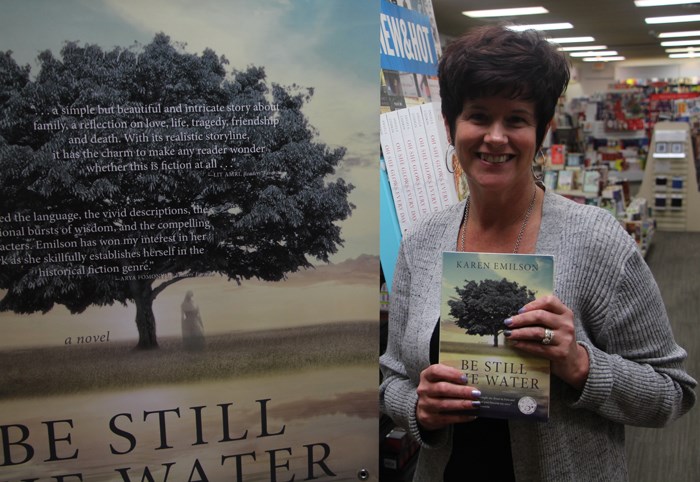Author Karen Emilson is celebrating two ends of her career. Her first book, Where Children Run is back in print on its 20th anniversary, and her newest, Be Still the Water has launched recently. The Manitoba author was at Coles to meet readers and talk about her work.
The older book, Where Children Run, tells the story of David and Dennis Pischke and how they endured growing up with an abusive stepfather.
“When the story came out 20 years ago it created a big stir because it was right at the time when people started talking about these things.”
Emilson credits the first book’s staying power to its subjects, the two men at the centre of the story being compelling characters, and their story something people can recognize, especially in the prairies.
“The twins themselves are extremely likeable people. You’re reading about these people who had this horrible childhood, but went on to overcome that. They broke the cycle of abuse.”
The new book is a departure for Emilson, because she has moved to working in fiction, writing a novel about Icelandic immigrants on Lake Manitoba.
“It’s a bit of a mystery, a bit of a love story, a bit of everything.”
The novel is based on a true story, built on stories and folklores passed along generations from people in the region. Starting with the story of a girl who went missing at 16, Emilson was intrigued by how people would deal with a missing person in the years before easy transportation and telecommunications, and that was the spark that caused Emilson to put together the story. She began to put together other events from history into the book, taking the stories from people in the area and building a novel out of the material.
It’s also a tribute to the people in the region, after a flood in the region around Lake Manitoba. She wanted to write a tribute to the people who lived in the region, bringing a number of things that happened in the area into the story to paint a picture of life when Icelandic people settled the area.
“I wanted to talk about the people, the culture, the history of the area.”
The book took five years to research and write, and Emilson says that she wanted to get it right. She wants to leave readers with a better sense of the region and the people who live there.
Emilson says that non-fiction is a more challenging genre, just because one must always work extensively with other people. She went into fiction because, at the time, she believed that she couldn’t find another person she wanted to work with to the same degree.
“To find people to work with, it’s hard. That story, as far as true stories go, hard to beat.”
In this case, she was wrong, because she is now working on another non-fiction book based on the story of a woman she met this year. After twenty years of turning people down, and intending to turn down this woman, she’s now writing her story.
“I didn’t go looking for it, it found me.”




